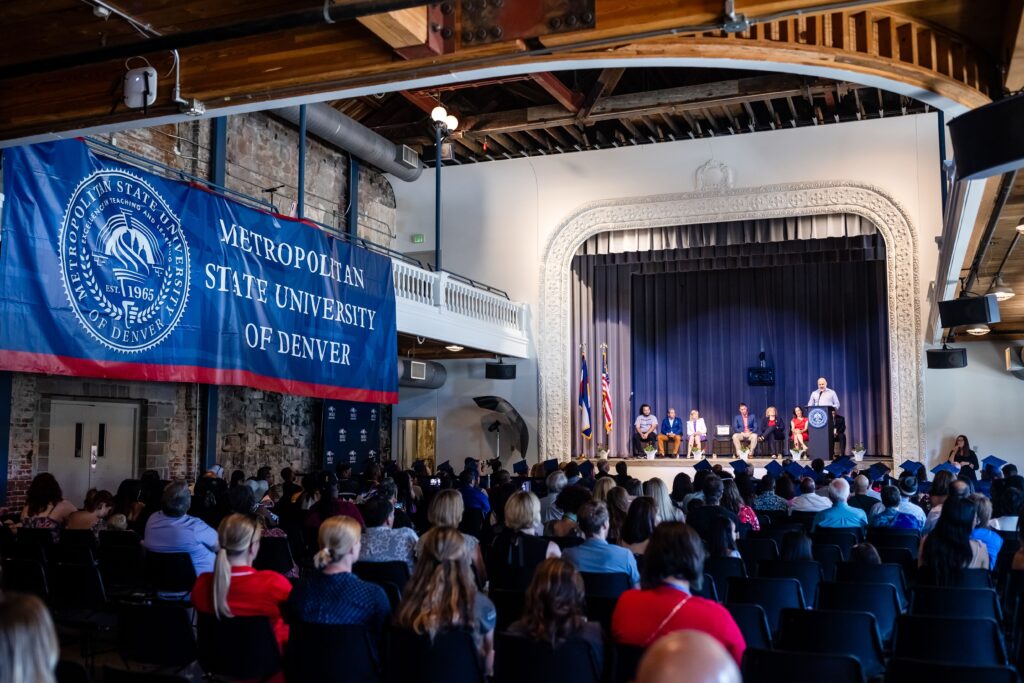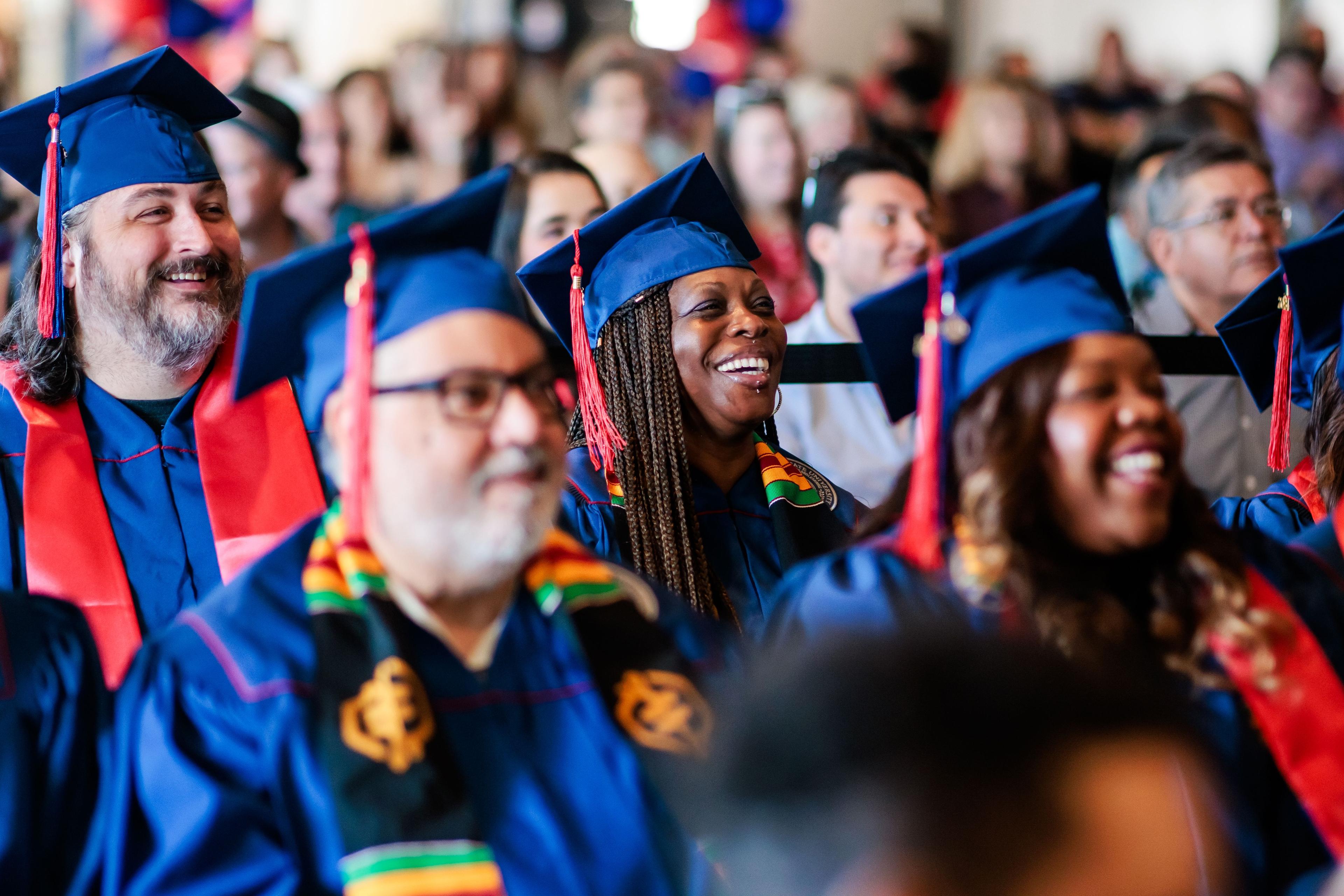
Lisa Johnson is a 59-year-old grandmother of six.
Last Saturday, donning a traditional cap and gown, she was over the moon. She walked across a stage on the Auraria Campus to receive her associate degree in general studies after starting her educational journey decades ago.
“It's just hard to explain the happiness that I am feeling at this very moment. Like I just want to pinch myself ... I’m very, very honored ... I never thought it was going to happen.”
Johnson said getting the degree is the best thing that ever happened to her, alongside giving birth to her children.
The graduation ceremony at Metropolitan State University of Denver was the first of its kind to award associate degrees to former students who’ve completed at least 70 credits towards their bachelor’s degree but then stopped school. A minimum of 70 credits is about two years of college.
The Colorado Re-Engaged (CORE) initiative became law in 2021, and for the first time, it recognized that more than 25,000 Coloradans who invested time and money but for a variety of reasons had to stop their education, could be eligible for a degree to reflect the work they’d done.
“What this bill was really looking to do was to one, give you a mile marker to say you did do something and this was significant and two, hopefully, encourage you to re-engage with this opportunity for higher education,” said Shaun Schafer, MSU Denver’s associate vice president of curriculum, academic effectiveness and policy development.
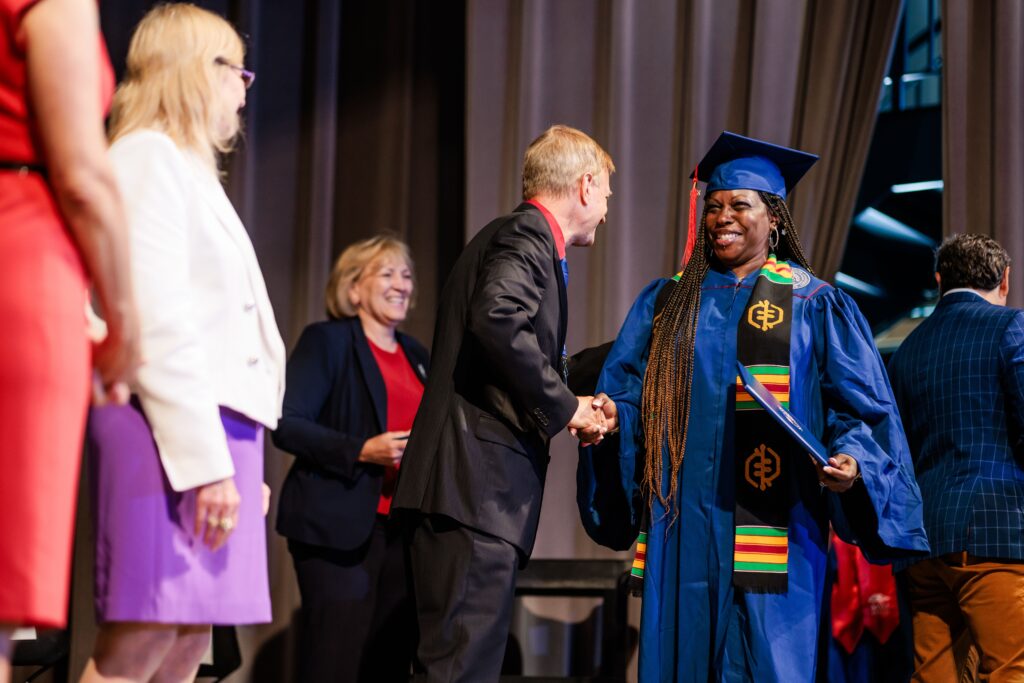
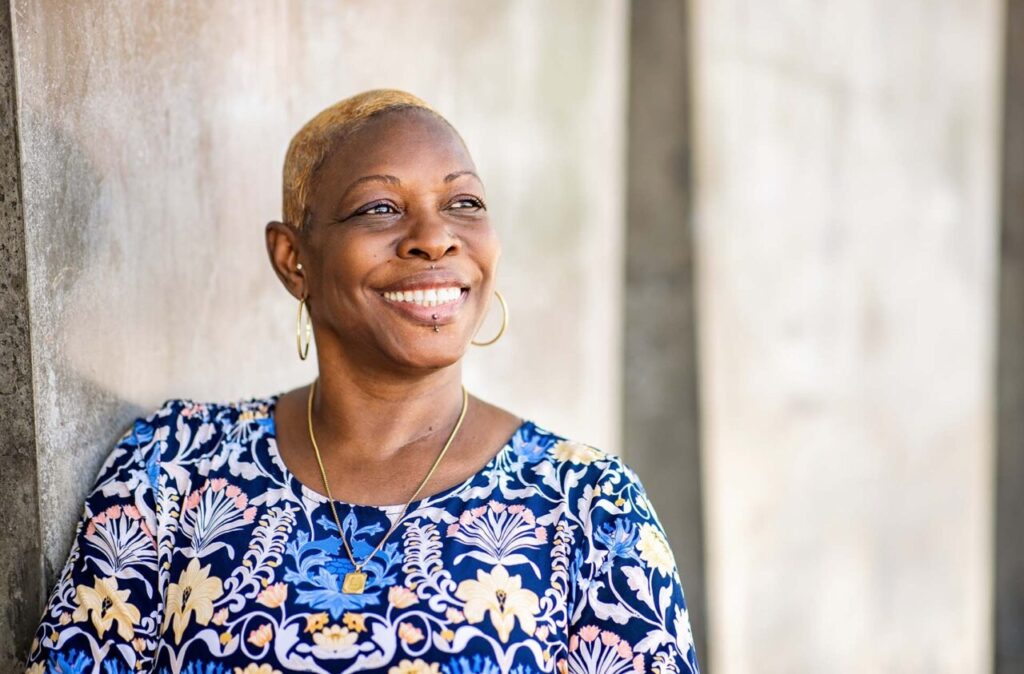
Schafer said reasons people had to leave college run the gamut: lack of funds, parents got sick, people had children, or jobs to survive got in the way.
“A lot of the people we've talked about, it became a choice between, ‘Well, I could keep going to school and doing this job, or I could go full-time.’”
To qualify for the MSU Denver degree, people needed at least 18 credits from MSU.
Johnson started her college journey decades ago in Würzburg, Germany
Johnson, a Florida native, was stationed there in the Army. After that first course, she was hooked. Over the next 20 years, wherever Johnson was posted, she took college classes — one class at a time. Her final posting was in Denver. She enrolled at MSU Denver in 2010. And kept going.
She attended classes on Saturdays, Sundays and evenings.
“It was very hard,” she said. “I had kids, was a single parent, but I did it because it made me feel so good like I accomplished … even though it was one class … the world.”
Johnson was always the oldest person in her class. But she didn’t care.
“I was doing it, not just for myself, but for my children and for my grandchildren. I wanted them to know that just because you get older that doesn't mean that you discontinue your education or you forget about your goals.”
The years passed, and her kids teased her.
“They would laugh at me. They're like, ‘You're going to be in a walker by the time you get it!’”
Johnson didn’t care. She jumped around subjects, too, checking out different disciplines: early childhood education, social work, biology (“I love biology!”). The last class she took at MSU was a map reading and mountaineering course. Out in nature, off the beaten track, she had to use all her skills to find clues and get back. But she got lost in a meadow.
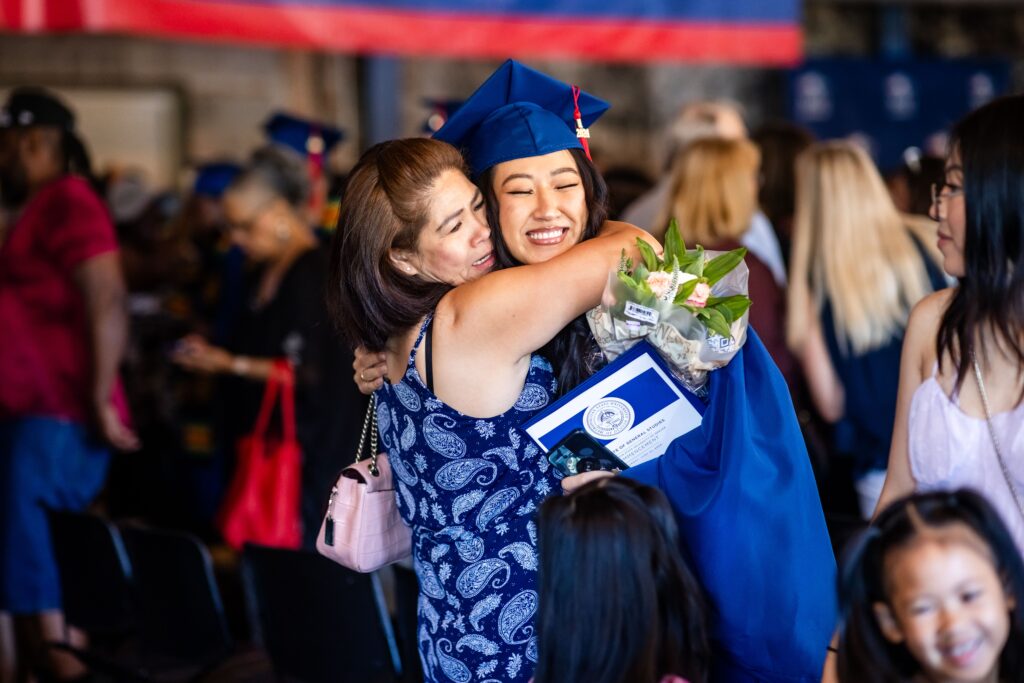
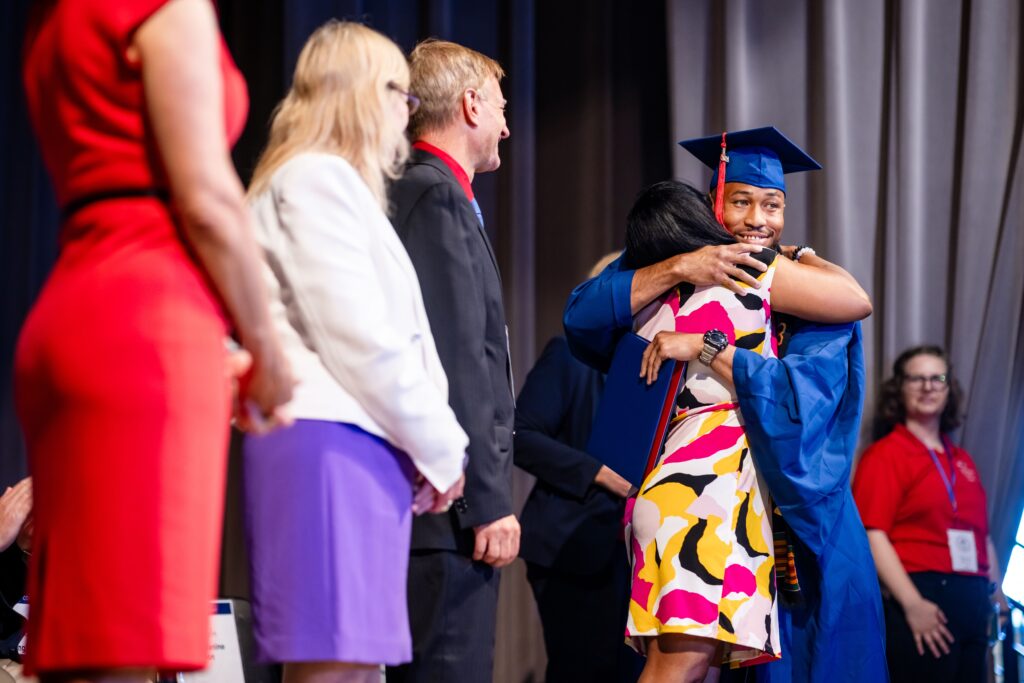
“It took me hours to get out there,” she said laughing. “They came looking for me … I thought I was going to Kansas!”
During the pandemic, Johnson’s progress came to a halt after she got very sick with COVID. She had to take six months off work and when she returned, she got it again. The disease took a big toll on her, afflicting her immune system. Johnson remembers she just wanted to get back to school.
“How was I going to focus with all these medications? I was just trying to navigate this (health condition). How I was going to do it? And then one day out of the blue, that email (from MSU Denver) came. I was crying … That email changed my life because I had almost given up.”
Notifying 4,000 former students they might qualify for a degree
The law directed participating colleges to go back through 10 years of their records to identify eligible students. MSU Denver found and notified about 4,000 students who attended from 2012 to 2021. Johnson was among 336 former students to take the university up on its offer to be awarded with an associate degree.
MSU Denver has awarded the largest number of degrees among participating universities.
Of the MSU Denver pool, about 58 percent are male, nearly 55 percent are first-generation college students and the oldest recipient is 76. Ten of them are active military veterans.
Armed with an associate degree for credits they’ve completed, former students can possibly get higher-paying jobs or return to higher education to complete a bachelor’s degree. An associate degree puts one’s median earnings at 18 percent higher than those with a high school diploma. Those with a bachelor’s degree earn 35 percent more than those with an associate degree.
Johnson wants that bachelor’s degree. She is registering for courses in the fall.
“One thing I am certain about is education,” she said. “I think that the more education we have as a society, we'll be better off.”
But first, Johnson has a cap, gown and diploma to pack.
She’s making a trip back to Florida to see her mom and extended family. Her mom asked her to bring it all.
“She wanted to be here (for the ceremony) so badly. But she hasn’t been able to travel that much. So she's like ‘Bring everything with you.’ I said, ‘I'm going to bring everything, don't you worry.’”
